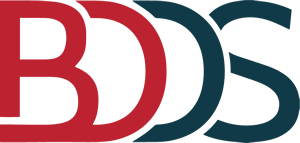




In this episode Gustavo Glusman explains his method of reducing a VCF file to a small “fingerprint”, which could be then used to detect duplicate genomes, infer relatedness, map the population structure, and more.
For more information, here is the link:
https://bioinformatics.chat/genome-fingerprints
Conference url: https://www.amia.org/amia2016
When: Saturday, Nov. 12, 8:30 am to 12:00 pm (half-day session)
Where: Hilton Chicago, Chicago, Il
Instructors: Ravi Madduri, Kyle Chard, Ian Foster
The Big Data for Discovery Science (BDDS) project will present various big data technologies to assist in discovery science.
Conference URL: http://acm-bcb.org
When: Sunday, Oct. 2, 1:00 to 3:00 pm
Where: Motif Seattle, 1415 5th Avenue, Seattle, WA 98101 (Room TBD)
Instructors: Naveen Ashish, Jack Van Horn, Gustavo Glusman and Ben Heavner
The Big Data for Discovery Science (BDDS) project will conduct a tutorial on big data technologies with a particular focus on data harmonization and automated data mapping. BDDS is supported by the NIH’s BD2K program.
Conference URL: https://www.sfn.org/annual-meeting/neuroscience-2016
When: Thursday November 17th 2016, 10 am – 4 pm
Where: San Diego Convention Center (Room TBD)
Instructors: Naveen Ashish, Mike D’Arcy, Jack Van Horn, Carl Kesselman and Arthur W. Toga
The Big Data for Discovery Science (BDDS) project will conduct a day-long educational and training symposium on big data processing and analysis technologies. Scientific use cases using the BDDS discovery science tools and platform will also be presented. BDDS is supported by the NIH’s BD2K program.
BDDS has released the initial public beta pre-release of its BD Bag software. The BD Bag software allows researchers to address a significant Big Data challenge of assembling, identifying, and providing access to subsets of data in a large and complex data collection workflow such as from a catalog search to an analysis pipeline and to a publication service. The beta release can be found here: http://bd2k.ini.usc.edu/tools/
The Big Data for Discovery Science has created the Minimal Viable Identifier (minid) pilot, which enables unambiguous naming and identification of research data products. Minids are designed to be lightweight, enabling simple creation and use, and requiring only minimal metadata to be specified about the object. For more information: http://bd2k.ini.usc.edu/tools/
Hoping to tame the torrent of data churning out of biology labs, the National Institutes of Health (NIH) today announced $32 million in awards in 2014 to help researchers develop ways to analyze and use large biological data sets.
In March 2012, the Obama Administration launched the Big Data Research and Development Initiative. To catalyze new biomedical Big Data research, the Obama Administration and the National Institutes of Health launched the Big Data to Knowledge (BD2K) initiative in April 2013. Today, NIH awarded a total of $32 million in new BD2K grants.
Obama Administration and the National Institutes of Health launched the Big Data to Knowledge (BD2K) initiative in April 2013. Today, NIH awarded a total of $32 million in new BD2K grants.
Of the 12 "centers of excellence" to be established under the BD2K initiative, four California institutions -- UCLA, USC, UC Santa Cruz and Stanford University -- will be tapped to play a major role. Collectively, the four universities are to be awarded $7 million in 2014 and are slated to receive close to $38 million over the next four years.
It's a new academic year at USC, and that means yet another new season of progress and possibility across all our campuses. Four years ago, I had just taken office as USC’s president. And I came here to deliver my first major address. Even before I had delivered my inaugural speech to the larger Trojan Family, I wanted to speak to you right here on the Health Sciences Campus.
The National Institutes of Health on Thursday awarded almost $32-million in grants to more than two dozen institutions to devise innovative ways of helping researchers handle huge sets of data seen as increasingly central to future medical discoveries.
In a rare distinction for one university, neuroimaging world leaders and USC Professors Arthur Toga and Paul Thompson will receive two major research center awards to advance their exploration of the human brain.